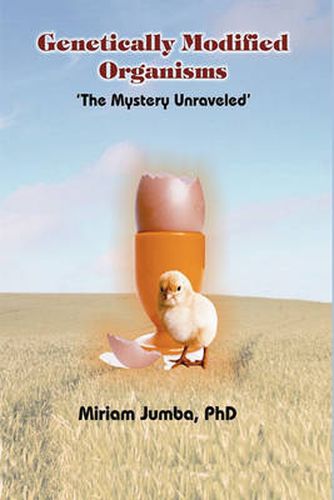Readings Newsletter
Become a Readings Member to make your shopping experience even easier.
Sign in or sign up for free!
You’re not far away from qualifying for FREE standard shipping within Australia
You’ve qualified for FREE standard shipping within Australia
The cart is loading…






This title is printed to order. This book may have been self-published. If so, we cannot guarantee the quality of the content. In the main most books will have gone through the editing process however some may not. We therefore suggest that you be aware of this before ordering this book. If in doubt check either the author or publisher’s details as we are unable to accept any returns unless they are faulty. Please contact us if you have any questions.
Products of gene modification have vast implications. Creating public awareness and disseminating information on the subject seeks to demystify some of the widely held falsehoods regarding genetically modified products. This is an informative, thorough and easy-to-understand guide book that aims to enlighten and debunk some of the commonly held misconceptions on products of gene modification and to give the reader a better understanding of the role genetic modification will play. The review sheds light on the safety, and application of these products in medicine, the food industry and other areas, especially those where genetic modification may represent a cheap, faster, credible and viable alternative in achieving sustainable development amongst poor communities.
Dr. Mirriam Jumba is a lecturer at the University of Nairobi, School of Biological Sciences, and relies on her scientific expertise as she explores the advantages as well as the risks and concerns surrounding genetic engineering. While answering the questions raised by consumers of genetically modified foods-foods that have the potential to solve many of the world’s hunger and malnutrition problems, to protect and preserve the environment by increasing yield, and to reduce reliance on chemical pesticides and herbicides-Dr. Jumba also delves into the many challenges that lie ahead for governments, especially in the areas of safety testing, the application of these products in medicine, regulation, international policy and food labeling.
The fascinating findings revealed in this study leave no doubt that if the developing world embraces the advantages of genetically modified organisms and biotechnology, dependence on the west can be reduced, ultimately resulting in positive development.
$9.00 standard shipping within Australia
FREE standard shipping within Australia for orders over $100.00
Express & International shipping calculated at checkout
This title is printed to order. This book may have been self-published. If so, we cannot guarantee the quality of the content. In the main most books will have gone through the editing process however some may not. We therefore suggest that you be aware of this before ordering this book. If in doubt check either the author or publisher’s details as we are unable to accept any returns unless they are faulty. Please contact us if you have any questions.
Products of gene modification have vast implications. Creating public awareness and disseminating information on the subject seeks to demystify some of the widely held falsehoods regarding genetically modified products. This is an informative, thorough and easy-to-understand guide book that aims to enlighten and debunk some of the commonly held misconceptions on products of gene modification and to give the reader a better understanding of the role genetic modification will play. The review sheds light on the safety, and application of these products in medicine, the food industry and other areas, especially those where genetic modification may represent a cheap, faster, credible and viable alternative in achieving sustainable development amongst poor communities.
Dr. Mirriam Jumba is a lecturer at the University of Nairobi, School of Biological Sciences, and relies on her scientific expertise as she explores the advantages as well as the risks and concerns surrounding genetic engineering. While answering the questions raised by consumers of genetically modified foods-foods that have the potential to solve many of the world’s hunger and malnutrition problems, to protect and preserve the environment by increasing yield, and to reduce reliance on chemical pesticides and herbicides-Dr. Jumba also delves into the many challenges that lie ahead for governments, especially in the areas of safety testing, the application of these products in medicine, regulation, international policy and food labeling.
The fascinating findings revealed in this study leave no doubt that if the developing world embraces the advantages of genetically modified organisms and biotechnology, dependence on the west can be reduced, ultimately resulting in positive development.